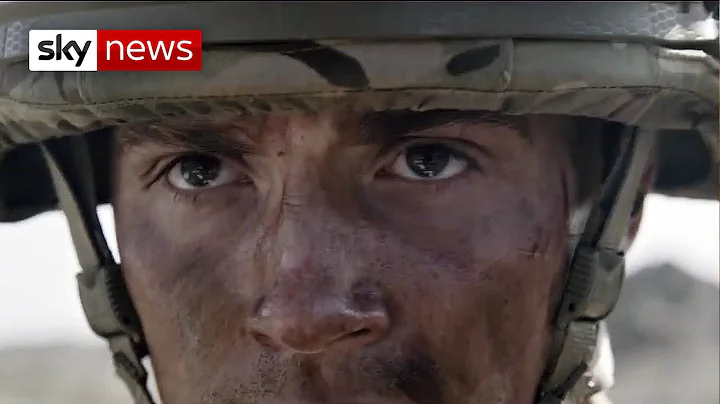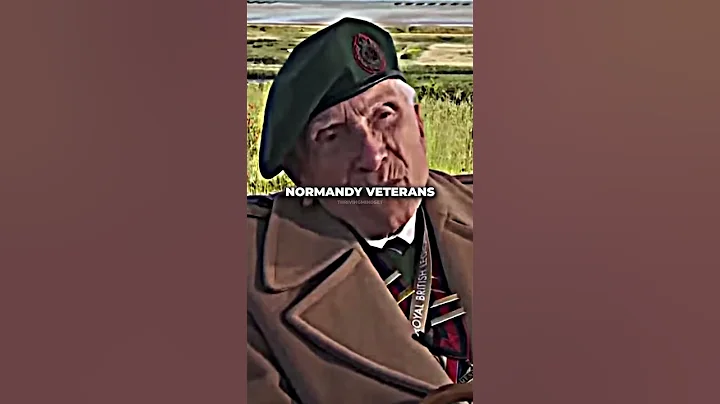The biggest difference between the people's army and the old army is ideology. An army armed with spirit is the most powerful. We can find a definite answer to this from modern history!
For example, the Kuomintang army was able to defeat the Beiyang warlords who were stronger on paper during the Northern Expedition because they also had spiritual strength to support them at that time. They were inspired by Sun Yat-sen's legacy of "creating a free and equal China" them.
However, after Chiang Kai-shek launched the "April 12" counter-revolutionary coup, the national army's faith collapsed, its internal structure rapidly rotted, and was eventually defeated by the people's army with popular support and firm belief.
Many people can't figure out why the National Army, which had an absolute advantage in the early days of the Liberation War, ended up retreating to Taiwan Province in just a few years. A very important reason for is that the army has no idea and does not know why to fight. Soldiers joining the army are more like doing a job. Since they have a working mentality, it is impossible to work hard. How can such an army have combat effectiveness? ?

What our military wanted when it was founded was to build a new China and let all Chinese people live a happy and stable life. This has never changed!
In order to maintain a high degree of unity throughout the army, the Party Central Committee attached great importance to ideological construction. In 1927, Sanwan was adapted from . Chairman Mao proposed "the branch is built on the company", which laid the foundation for the party to lead the army. At the Gutian Conference in 1929, Chairman Mao once again carried out in-depth reforms of the Red Army and established a political commissar system. The political commissar is the link that unifies the thoughts of the entire army!
But there is a problem here. Political commissars are political cadres who are mainly responsible for grasping ideas, and there are military officers in the army who are mainly responsible for commanding operations. Which of these two positions has more real power? Who should you listen to when faced with conflict?

Political commissars are only set up in troops at the regiment level or above. Political cadres at the battalion level are called political instructors, and political cadres at the company level are called political instructors. They are all fulfilling the party's guiding powers and responsibilities.
Our army implements a dual-chief system, taking the regiment level as an example. Generally speaking, the regiment commander is responsible for marching and fighting, and the regiment political commissar is responsible for managing the political life of the army, and they cooperate with each other. For example, in the famous military drama "Bright Sword", Li Yunlong said to Zhao Gang in the early days of the Anti-Japanese War: I take care of the war, you take care of life.
This is true, but not entirely true. The division of labor is indeed as Li Yunlong said, but the political commissar has the final say. As early as 1930, the "Interim Regulations on the Political Work of the Chinese Workers' and Peasants' Red Army" issued by the central government clearly stated: When a political commissar disagrees with a military commander at the same level, the political commissar has the power to stop the military commander's order.
In other words, after the military commander has made combat arrangements, the political commissar has the right to review whether the action complies with the party's principles and disciplines. If the political commissar thinks that there is a problem with the action, then the political commissar still has to listen to the political commissar in the end. The reason why

is like this is based on the actual situation.
Our party was in a very difficult situation in the early days, with insufficient material life and long-term threats from the Kuomintang. Some people who were not firm in their thinking could not bear this kind of suffering, so some people defected, and there were even officers leading the party. Escape incident.
Let the political commissar have the final decision-making power in order to prevent such situations as much as possible. At the same time, the political commissar also supervises the military chiefs to a certain extent to prevent the emergence of warlordism that respects the troops and takes credit.
Facts have proved that this policy was very consistent with the background of the time. For example, in 1932, Guo Bingsheng, Peng Dehuai's adopted son and commander of the Red 2nd Division of the Third Red Army, conspired to rebel. At first, he did not dare to take action because political commissar Peng Xuefeng was around.
It was not until Peng Xuefeng led some troops to cover his retreat during the battles in Yihuang and Le'an that Guo Bingsheng led a regiment to change routes and surrender to the enemy in the name of transfer.

When Peng Xuefeng finally broke through the encirclement and rushed to the agreed rendezvous point, he saw no sign of the division commander. After learning from others that Guo Bingsheng was leading his troops in another direction, Peng Xuefeng quickly led 15 people to chase him.
Fortunately, Peng Xuefeng and the others caught up. After the regiment saw the division political commissar, they followed them back. If the political commissar hadn't played a big role, Guo Bingsheng, relying on his two identities as Peng Dehuai's adopted son and commander of the Red 2nd Division, could have allowed this regiment to get rid of Peng Xuefeng and others, and then openly surrendered to the enemy.
In short, in the early days, the political commissar was the link that united the troops around the party, so they had more power than the military chief. During the period of the Eighth Route Army and the New Fourth Army, the people's army developed very rapidly and faced a somewhat different environment. Therefore, the central government promulgated the "Provisional Regulations on Political Commissars" and made slight modifications to the final decision-making power.
made it clear that in terms of military affairs, military commanders have greater responsibilities, but political commissars still have the power to stop military commanders' orders. If there is a dispute between two people, they should report it to their superiors immediately. Before receiving instructions from their superiors, the opinions of the political commissar should prevail.

This adjustment has expanded certain powers to military commanders, but the final decision-making power still lies in the hands of political commissars. But this policy, which was very reasonable during the Red Army period, had some problems during the Eighth Route Army period.
Because the political commissars during the Red Army period all grew up step by step on the battlefield and had relatively rich war experience. People like Peng Xuefeng, Huang Kecheng, Yang Chengwu and others were all outstanding representatives, and they were later qualified to serve as military chiefs.
However, during the Eighth Route Army period, our army expanded too fast and there were simply not enough political cadres. Some young cadres with little actual combat experience have also taken up important positions. They do not have enough grasp of the war, which will bring hidden dangers. The battle of Xuecun in 1942 is a painful lesson.
At that time, Wang Yuanyin, political commissar of the Jizhong Eighth Army Division, and Chang Deshan, commander of the Jizhong Eighth Army Division, were stationed in the east area of Ziya River. Through enemy reconnaissance and radio contact, they learned that the Japanese invaders had assembled a large number of troops to attack them.
Chang Deshan knew that the situation was dangerous and said that the troops should withdraw immediately. However, Wang Yuanyin was worried that withdrawing like this would make the local people think that the Eighth Route Army was afraid of death and would have a bad influence, so he decided to fight before withdrawing. The two argued for several hours to no avail, and Wang Yuanyin used the "final decision" to keep the troops in Xuecun.

As a result, there were too many enemies, with more than 4,000 people gathered. However, the Eighth Army Division only had 700 people, and they suffered heavy casualties due to being outnumbered.
In the end, Chang Deshan was shot 27 times and died. After Wang Yuanyin was injured, he refused to be a prisoner and committed suicide by drinking bullets. Wang Wei, political commissar of the 30th Regiment, Xiao Zhiguo, deputy commander of the 30th Regiment, Qiu Fuhe, commander of the second battalion of the 23rd Regiment, Yang Kefu, chief of the reconnaissance section of the military division, and other cadres also unfortunately died. The Eighth Army Division suffered a devastating blow.
Such a tragic outcome shocked the central government. The Military Commission immediately held a special meeting. announced that the political commissar would no longer have the final say in military matters. Military commanders would be responsible for military operations. If a dispute occurred, the details would be reported promptly. Report.

However, this does not mean that political commissars cannot influence military decisions. After all, the most important principle is " the party commands the gun ".
For example, when the Liaoshen Campaign was about to be launched, the commander of Dongye Lin Shuai was very hesitant about whether to attack Jinzhou . He was worried that he would be attacked by the national army in many aspects, which would put the troops in danger, so There was also the idea of withdrawing the troops to Changchun.
At this time, Higashino political commissar Luo Shuai played the role of the party in guiding the army. Luo Shuai understood the strategic intentions of the central government and the chairman, so he opposed the withdrawal to Changchun and patiently persuaded Mr. Lin. This led to what we know Battle of Liaoshen. In the entire decision-making process, political commissar Luo Shuai played a huge role.
We all know that Lin Shuai has extremely high prestige and power in Dongye, but Luo Shuai can also influence the movements of this army.

Generally speaking, the division of labor between political commissars and commanders is different, and most of the time they perform their respective duties. As for who has more real power, in principle it is equal, but the specifics will depend on the period and the characteristics of the unit. In war years, political commissars often have more real power. After all, the party commands the gun!





















